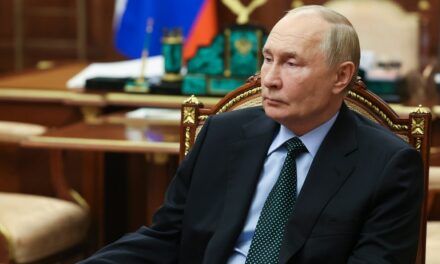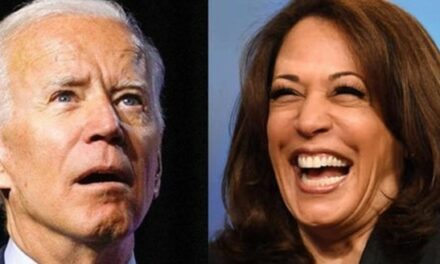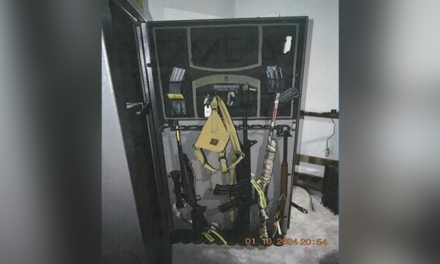We support our Publishers and Content Creators. You can view this story on their website by CLICKING HERE.
Israeli Prime Minister Benjamin Netanyahu publicly backed a cease-fire agreement with Hezbollah terrorists that would end nearly 14 months of fighting, but the deal, brokered by the U.S. and France, has yet to be formally approved by his cabinet.
Netanyahu’s security Cabinet convened earlier Tuesday, when ministers had been deliberating for more than three hours over the proposed cease-fire.
At a press conference while deliberations were ongoing, Netanyahu laid out three reasons in support of the deal: to focus on the Iranian threat; provide an opportunity to refresh the Israeli forces; and separate Hamas from the northern front.
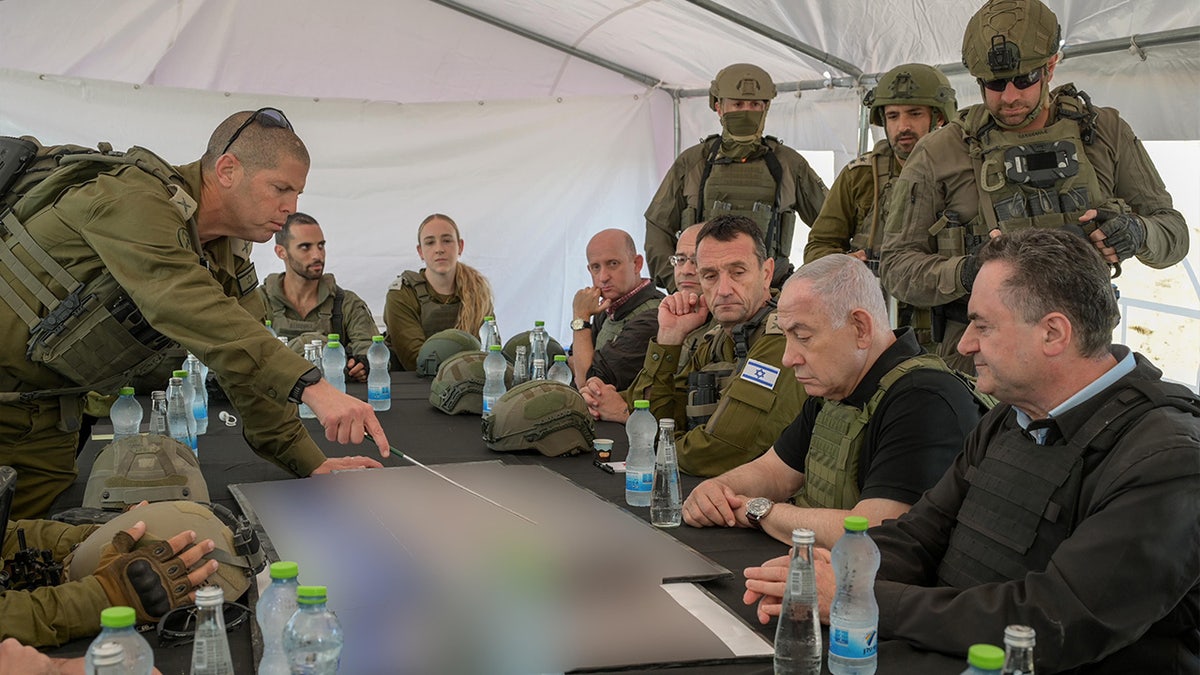
Israeli Prime Minister Benjamin Netanyahu meets with Israeli Defense Forces commanders in the Netzarim Corridor in Gaza to discuss Hamas activity on Nov. 19, 2024. (Photo provided by TPS)
By ending the conflict with Hezbollah, Netanyahu said Hamas would stand alone, clearing the way for Israeli forces to recover the remaining Oct. 7 hostages.
Netanyahu said he would present the agreement to the Cabinet for a vote later Tuesday.
“How long it will be will depends on what will happen in Lebanon,” Netanyahu said. “If Hezbollah doesn’t follow the agreement, we’ll attack.”
Under the proposed terms of an initial two-month cease-fire, Hezbollah is required to move its forces north of the Litani River – a significant focal point which in some places is 20 miles from the Israeli border – and Israeli forces must withdraw from southern Lebanon as well. The Lebanese armed forces are to deploy to the border region within 60 days, and a five-country committee chaired by the U.S., and including France, would monitor compliance of the terms of the deal, Reuters reported.
A peacekeeping mission by observers from the United Nations Interim Force in Lebanon will also continue, according to the Israeli news agency Tazpit Press Service (TPS-IL).
ISRAEL ‘MOVING FORWARD’ ON POSSIBLE HEZBOLLAH CEASE-FIRE, OFFICIAL SAYS
Among the remaining issues was Israel’s demand to reserve the right to take military action should Hezbollah violate its obligations under the emerging deal.
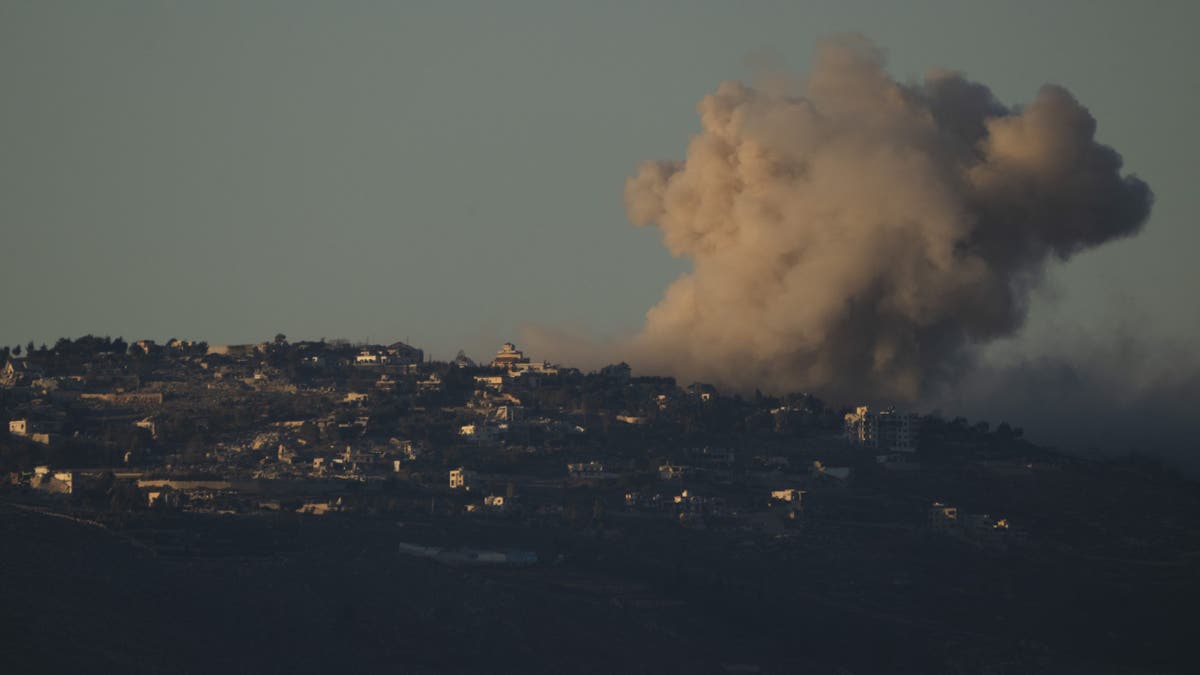
Smoke rises following Israeli bombardment in southern Lebanon as seen from northern Israel on Tuesday, Nov. 26, 2024. (AP Photo/Leo Correa)
The Israeli Defense Forces (IDF) said earlier Tuesday that its ground troops have reached parts of Lebanon’s Litani River – considered a longtime Hezbollah stronghold.
In a statement, the IDF said its troops had reached the Wadi Slouqi area in southern Lebanon and “raided Hezbollah strongholds, uncovering and confiscating hundreds of weapons, dismantling dozens of underground facilities, and neutralizing numerous rocket launchers that were prepared for imminent use.”
The IDF said the clashes with Hezbollah took place on the eastern end of the Litani, just a few miles from the border. It is one of the deepest places Israeli forces have reached in a nearly two-month ground operation.
The Israeli military said troops “conducted intelligence-based raids based on terrorist infrastructure concealed in the complex terrain.”
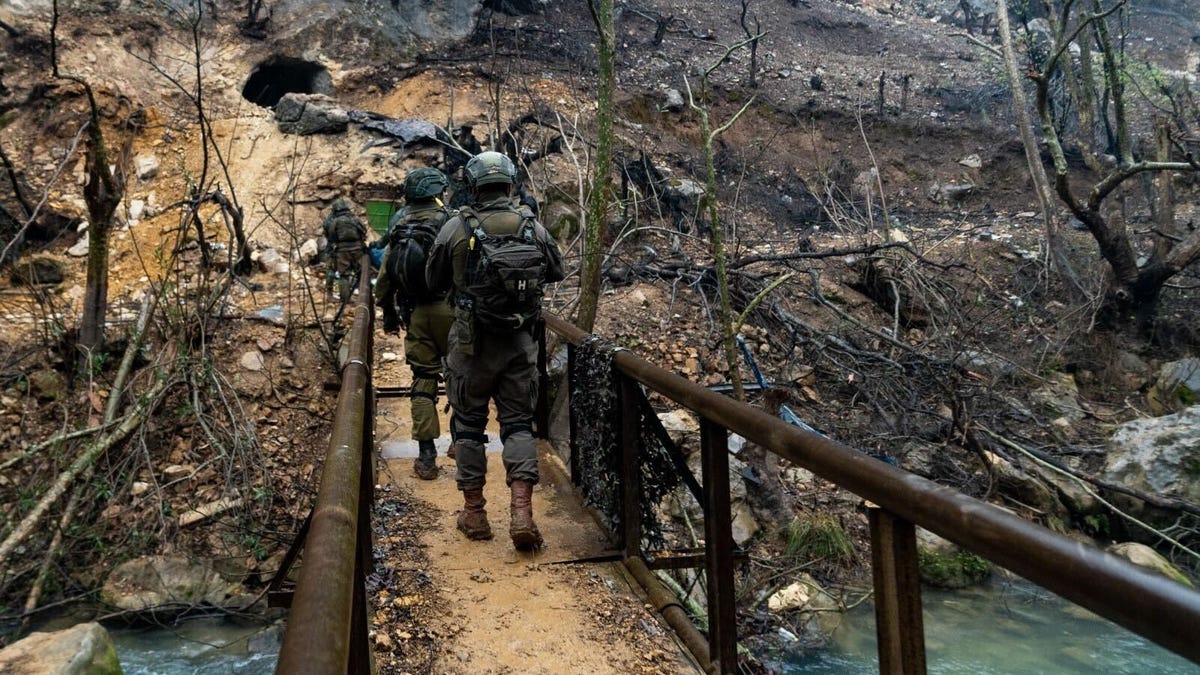
Israeli soldiers at the Litani River in southern Lebanon on Tuesday, Nov. 26, 2024. (IDF Spokesperson/TPS-IL)
TRUMP, CONGRESS LOOKING TO PUT SUFFOCATING SANCTIONS ON ‘KANGAROO’ ICC OVER NETANYAHU ARREST WARRANT
“The soldiers raided several terrorist targets, engaged in close-quarters combat with terrorists, located and destroyed dozens of launchers, thousands of rockets and missiles, and weapons storage facilities hidden in the mountainside,” the IDF said.
Hezbollah began attacking Israel on Oct. 8, 2023, a day after Hamas terrorists killed more than 1,200 people and took more than 250 hostages from southern Israel into Gaza, setting off more than a year of fighting. That escalated in September with massive Israeli airstrikes across Lebanon, and an Israeli ground incursion of the country’s south. Hezbollah has fired thousands of rockets into Israeli military bases, cities and towns, including some 250 projectiles on Sunday.
More than 68,000 Israelis have been displaced from their homes along the Lebanese border, TPS-IL reports.
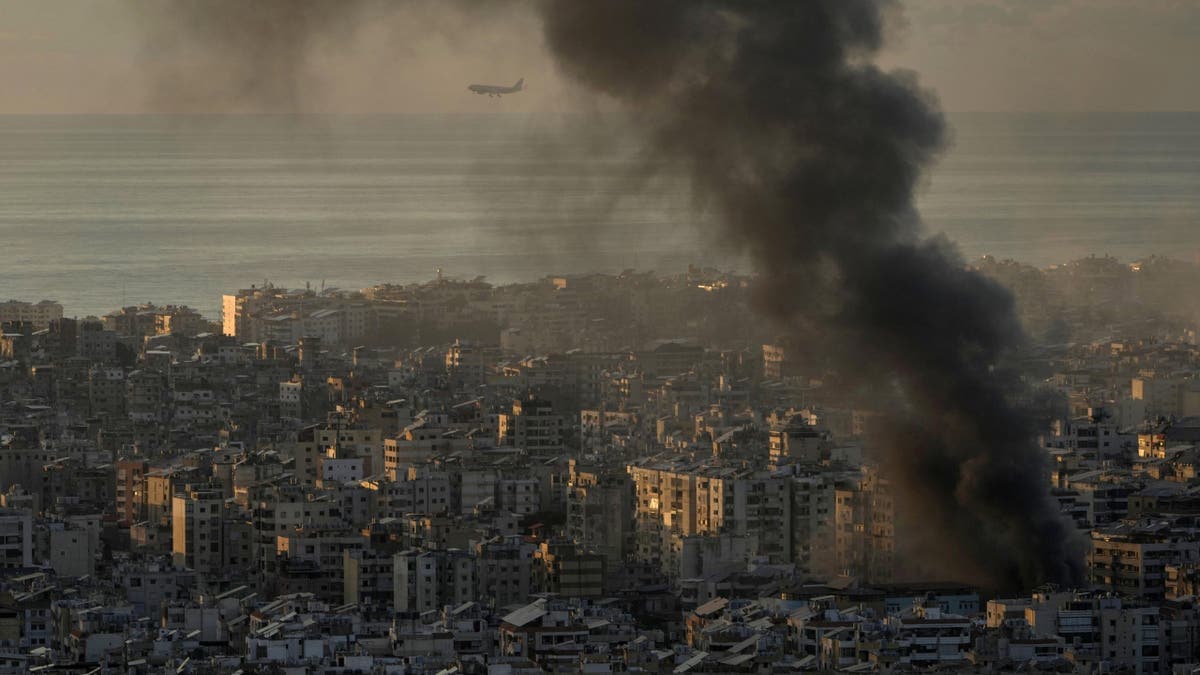
A Middle East Airlines plane flies as smoke rises following an Israeli airstrike on Dahiyeh, in Beirut on Tuesday, Nov. 26, 2024. (AP Photo/Bilal Hussein)
An Israeli strike on Tuesday leveled a residential building in the central Beirut district of Basta — the second time in recent days warplanes have hit the crowded area near the city’s downtown.
The Israeli military also issued warnings for 20 more buildings in Beirut’s Hezbollah-controlled suburbs to evacuate before they too were struck — a move carried out in the final moments before any cease-fire took hold.
CLICK HERE TO GET THE FOX NEWS APP
Speaking on the sidelines of a Group of Seven meeting in Italy, the European Union’s foreign policy chief, Josep Borrell, said Tuesday there were “no excuses” for Israel to refuse a cease-fire with Hezbollah, warning that without it, “Lebanon will fall apart.”
The Times of Israel reported that Minister of Defense Israel Katz met with the U.N. Special Envoy for Lebanon Jeanine Hennis-Plasschaert on Tuesday, when he said Jerusalem would have “Zero tolerance” for any violation of the truce, warning that “If you don’t do it, we will … and with great force.”
The Associated Press contributed to this report.

 Conservative
Conservative  Search
Search Trending
Trending Current News
Current News 